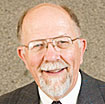Commentary on 2 Samuel 1:1, 17-27
The second half of 1 Samuel recounts the contest between Saul and David.
Samuel anointed David in 1 Samuel 16, and throughout the rest of the book, all sorts of people endorse David as the coming king: the women who hail David’s victories; Saul’s son Jonathan and his daughter Michal; Abigail the erstwhile wife of Nabal; and finally even Saul himself.
David’s role, however, as king-in-waiting is hardly unambiguous. He travels around with a band of four hundred soldiers. His marriage to Abigail and the death of her husband, Nabal, happen under strange circumstances. David even consorts with the Philistines, Israel’s arch enemies. Meanwhile, Saul is increasingly portrayed as losing control and gaining in paranoia.
Saul tried to kill David on several occasions, and, finally and pathetically, he beseeches the medium at Endor to bring Samuel up from the dead, only to discover through Samuel that Saul himself will die the next day (1 Samuel 28). Saul takes the easy way out in his final battle, choosing suicide over any other option (1 Samuel 31). But, to his credit, Saul had also saved Israel from total defeat at the hand of the Philistines. His was an important first step toward freedom from foreign enemies and a stable government.
The old poem that forms the Old Testament reading for this Sunday expresses David’s deep grief over the death of Saul and Jonathan, and his undying love for Jonathan. He grieves over the man who tried to kill him, and with whom he had been involved in countless cat-and-mouse chases across Judah.
The poem offers another take on the last fifteen chapters of 1 Samuel, casting David as noble and broken by these tragic events, and yet worthy to be king himself. In this dirge, David addresses the mountains of Gilboa, the daughters of Israel, and Jonathan; interestingly not including an address to God.
This lament can express the grief all of us have experienced over the loss of a close friend or relative, those fallen in warfare, or a great leader (John F. Kennedy; Martin Luther King, Jr.). Sometimes our whole communities experience the trials of grief and loss (think of those who mourn the victims of September 11 or Hurricane Katrina).
The death of Saul marks the defeat of Israel (2 Samuel 1:19). David urges no one to tell the arch-enemy Philistines about what has happened. To experience their victorious gloating would be more than anyone could stand (1:20).
Saul had died on the Mountains of Gilboa. David offers a kind of curse on these mountains. He prays that they would experience no rain or other moisture to make the vegetation normal. All nature should express sorrow over the fallen Saul (1:21).
Jonathan and Saul had been fearless and relentless warriors (1:22). Swift and strong though they were, David ironically hails them as undivided soul mates in life and in death. Of course, Saul also tried to kill Jonathan, and Jonathan had been David’s best friend and ally. In reality, Saul and Jonathan were divided (1 Samuel 20:30-34; 22:8); still, they died together (2 Samuel 1:23). They were “beloved and lovely.” After reading 1 Samuel, one might see Jonathan that way, but hardly Saul.
David calls for the professional mourning women to shed many tears over Saul. Saul had helped their economy, even providing them with luxury items (1:24).
David’s deepest grief is for Jonathan, who had all but ceded the kingship, which was his by birthright, to David. David knew about the love of women, even many women. Were these liaisons ones of love or lust? Was love the primary emotion in those arranged marriages? Still, David had never experienced love like what Jonathan had for him (1:26). Jonathan’s love expressed itself in his surrender of any claim to the throne (1 Samuel 18:4).
The mighty had fallen in the midst of battle for the fatherland (2 Samuel 1:25). The mighty had fallen, and the weapons of war had proven to be unfaithful (1:27).
The Bible is full of mockery over the futility of armaments. God sees them from heaven and laughs (Psalm 2:4). Whatever one might say about Holy War in the Old Testament, its whole point was that wars were fought only under Yahweh’s authority and permission. Numbers of soldiers and the size of weapons were irrelevant. The weapons of war have perished. Is that tragedy or good news? Surprise or what we ought to expect?
How does one preach on such a text? It is a celebration of friendship, an ode to the power and importance of political leadership. Is it also a confession by David that he had gone too far in his quest for power, more or less naïve about what this life and death struggle was all about? Is it almost a confession of sins?
The God who calls us to follow also calls us to friendships, to live life amidst the ambiguities of life, perhaps even to sin boldly. But, in the following chapters and years, David still faces many temptations, succumbs to adultery, and uses murder to cover up that sin. Still, this is all in the future. For now, David reflects on the ambiguities of life, the loss of his best friend, and the loss of his greatest enemy.
How does one preach a God who is big enough to forgive a sinner, such as David, such as me?
The church should be a place where death can be faced realistically and our grief over loss can be safely expressed. David’s dirge keeps us from moving too quickly to joy and praise after serious loss.

June 28, 2009